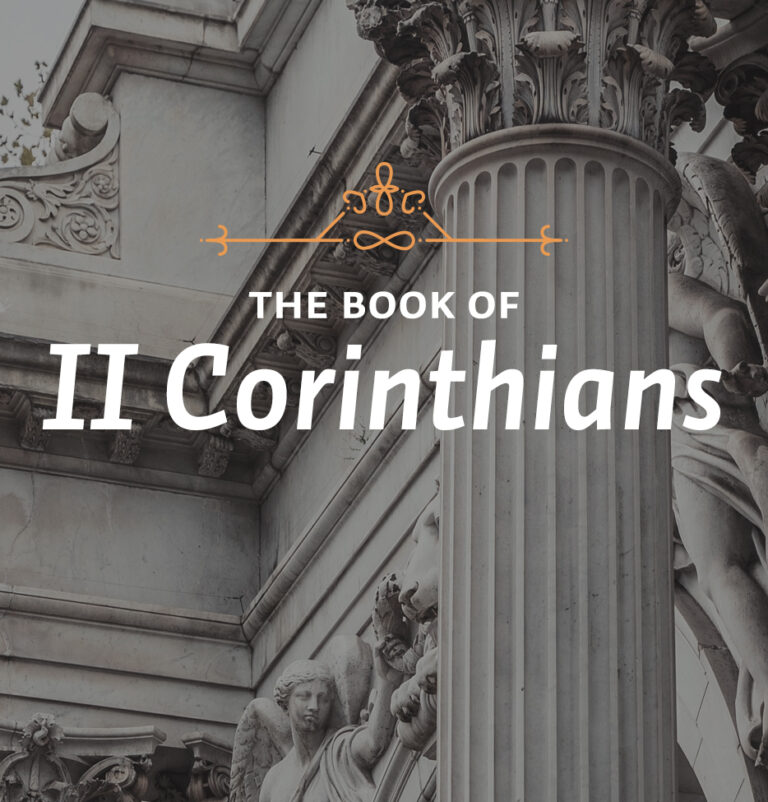
Paul, the Bold — Part Two
Paul, the Bold2 Corinthians 10:1-18Theme: Strength under pressure.This week’s lessons teach us how to handle criticism in a God-honoring way.
Lesson

Paul, the Bold2 Corinthians 10:1-18Theme: Strength under pressure.This week’s lessons teach us how to handle criticism in a God-honoring way.
Lesson

Paul, the Bold2 Corinthians 10:1-18Theme: Strength under pressure.This week’s lessons teach us how to handle criticism in a God-honoring way.
Lesson

Paul, the Bold2 Corinthians 10:1-18Theme: Strength under pressure.This week’s lessons teach us how to handle criticism in a God-honoring way.
Lesson

Paul, the Bold2 Corinthians 10:1-18Theme: Strength under pressure.This week’s lessons teach us how to handle criticism in a God-honoring way.
Lesson
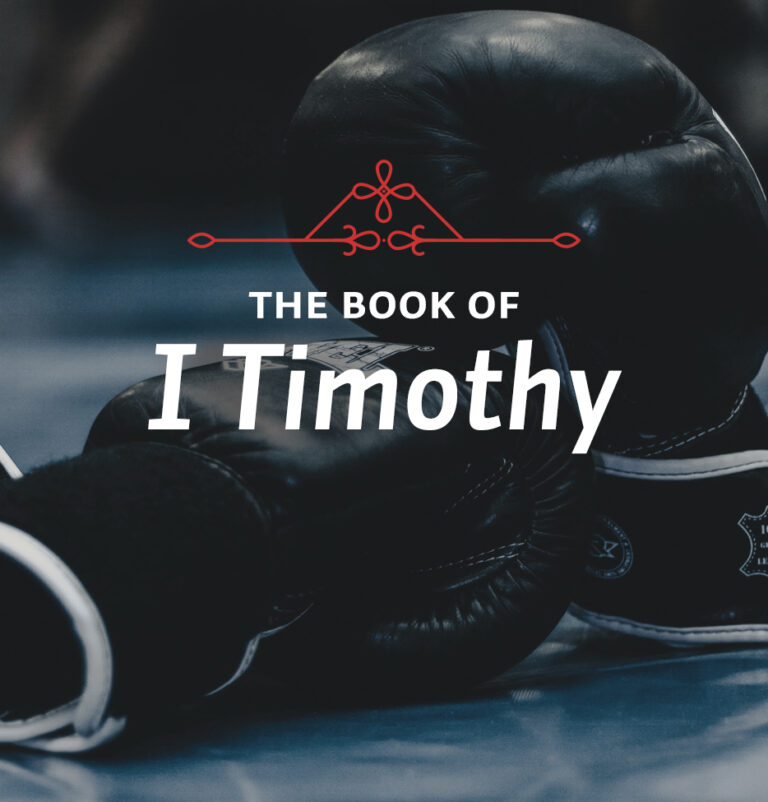
Theme: The Example of Christ
In this week’s study, we look at the office of elder and deacon, and note the importance of Christian leadership, both in the church and in other callings we have received from God.
Scripture: 1 Timothy 3:1-13

Theme: Christian Leaders
In this week’s study, we look at the office of elder and deacon, and note the importance of Christian leadership, both in the church and in other callings we have received from God.
Scripture: 1 Timothy 3:1-13

Theme: Servant Leadership
In this week’s study, we look at the office of elder and deacon, and note the importance of Christian leadership, both in the church and in other callings we have received from God.
Scripture: 1 Timothy 3:1-13

Theme: The Need for Deacons
In this week’s study, we look at the office of elder and deacon, and note the importance of Christian leadership, both in the church and in other callings we have received from God.
Scripture: 1 Timothy 3:1-13

Theme: The Office of Elder
In this week’s study, we look at the office of elder and deacon, and note the importance of Christian leadership, both in the church and in other callings we have received from God.
Scripture: 1 Timothy 3:1-13
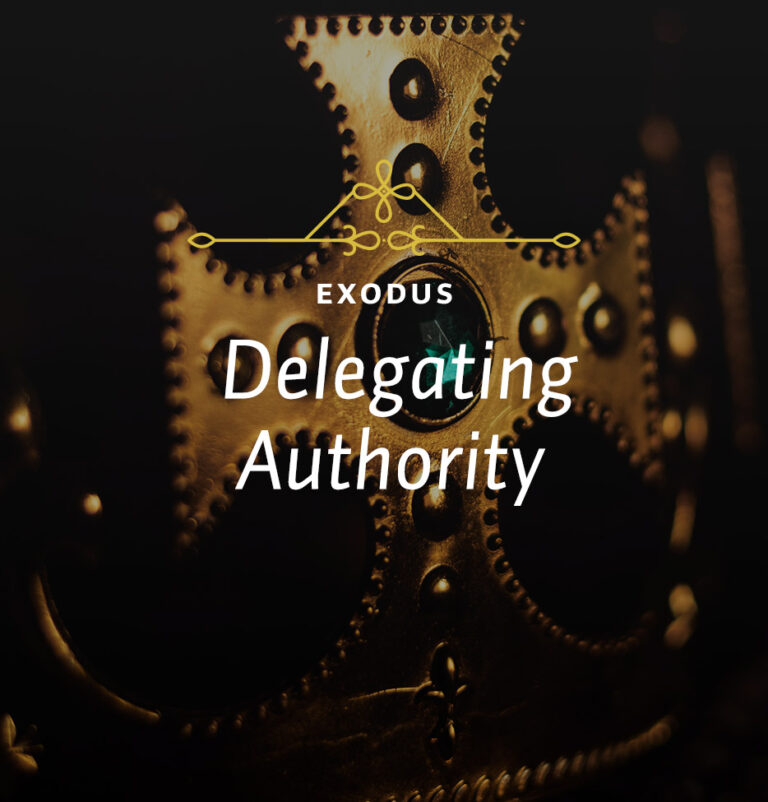
Leadership involves loneliness. The leader walks alone. The task of a leader is to set the vision, plan and motivate. By the very nature of the task, the leader is doing that more or less by himself. Sometimes it’s done with a team, of course, but not with the support or understanding of the masses of the people. Once you set a vision, it has to be communicated, and initially it’s not always shared. The plan, too, is so often misunderstood. And motivations are resisted. Yet the leader has to carry on.

These two old men have a great deal to share. Moses begins to rehearse to him all of the things that God had done on behalf of the people. Moses told of traveling to Egypt, meeting with the elders, and encountering Pharaoh, who rejected God’s demands. Moses told of the plagues and their significance. And then there was the night of the Passover, as the angel of death came through the land and killed all the firstborn of Egypt. After that, Moses recounted how Israel left in a hurry, and God saw them across the Red Sea and protected them in the desert, including delivering them from the Amalekites in that first great battle. In response, Jethro begins to praise God (vv. 10-11).

As I said, the heart of this chapter concerns the need for help in judging. The day after Jethro’s arrival, Moses went out to judge the people. They began to come to him early in the morning, and Moses made these judgments from morning until late at night. That’s not at all surprising, given that there are two million people. You can easily imagine that they got in one another’s way from time to time. Somebody’s sheep wandered over into the other man’s pen, and the first man wanted it back and the other one thought that it was his sheep all along. And there were probably things far worse than that. Moses was absolutely worn out from this task.

Moses was an extraordinary man. He had magnificent gifts and unbelievable training, the best possible training you could have in that day. But you see, even Moses couldn’t do everything. This is why you get the division of leadership. If he couldn’t do it, we can’t do it either. And we should be looking for people who can.

The second principle is very much like the first. Not only do you need a division of authority, but you also need a plurality of leadership. You find this in the New Testament. When Christ appointed apostles, He appointed twelve. And then when the early church appointed deacons, there were seven of them. When Paul traveled around the Roman world and established churches, he always left elders in charge, never just one. In my denomination we can’t have a self-governing church until we have at least two elders. There is wisdom in having more than one elder.
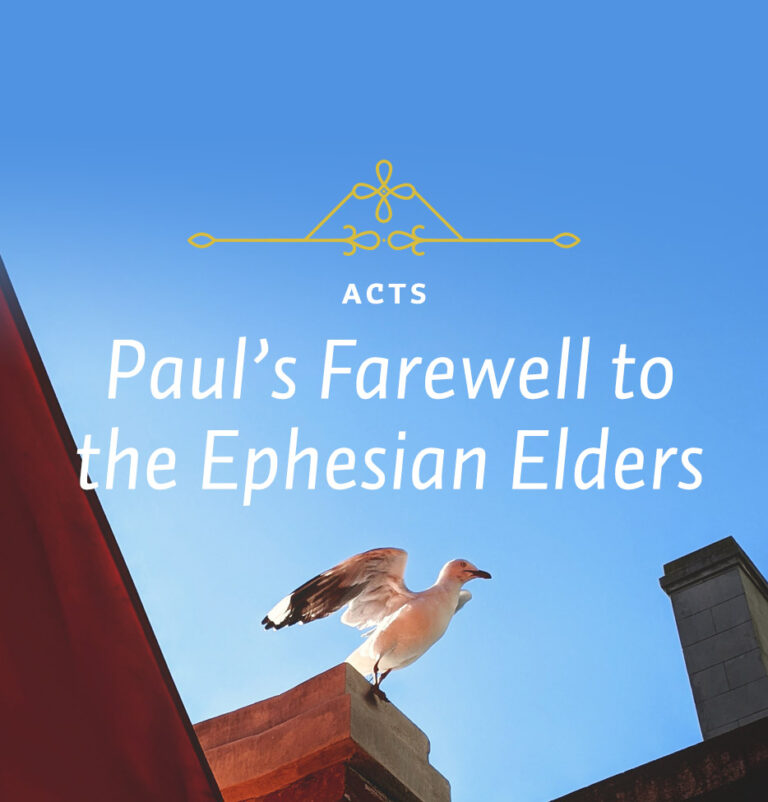
To anybody who has an interest in Paul as a person, the twentieth chapter of Acts is a delight. This is because we see him in two different but very important lights. We see him in public at Troas, leading the worship of the church. Then we see him in a private setting, meeting with the Ephesian elders at Miletus, a little town about twenty or thirty miles south of the Asian capital. The section is known as “Paul’s farewell to the Ephesian elders,” and it has three parts. The first concerns Paul himself. It contains Paul’s personal testimony before the elders. The second part is his specific charge to them. Finally, at the very end of the chapter and in much briefer language, we have a reference to his prayer on their behalf.

The second thing Paul says about himself in his testimony before the Ephesian elders is that, as he served among them with humility, he also did so with tears. Paul mentions this twice in the chapter. It is in verse 19, but you also find it in verse 31: “Remember that for three years I never stopped warning each of you night and day with tears.” Obviously this was something of considerable importance to him, though, as far as I know, this too is not referred to elsewhere.

Not only did Paul minister humbly and with tears, and not only was he diligent in his preaching, but he also had a proper set of priorities (v. 24). He told the elders, “I consider my life worth nothing to me, if only I may finish the race and complete the task the Lord Jesus has given me—the task of testifying to the gospel of God’s grace.”

The second part of Acts 20:13-38 is Paul’s charge to the elders. It is in verses 25-31. He puts it in different ways, but when we analyze what he is saying it boils down to one thing: “Keep watch over the flock within your charge.” He says, “Be diligent,” “Watch out for enemies,” “Take heed of wolves.” But basically he is telling them: “Keep watch over yourselves and all the flock of which the Holy Spirit has made you overseers” (v. 28).

How do you conclude a study like this, a farewell in which the Apostle Paul gave his personal testimony, charged those he was leaving behind, and prayed for them? I think there is a suggestion of a way to conclude in verse 32, where Paul speaks of “an inheritance” that God has prepared for His people.
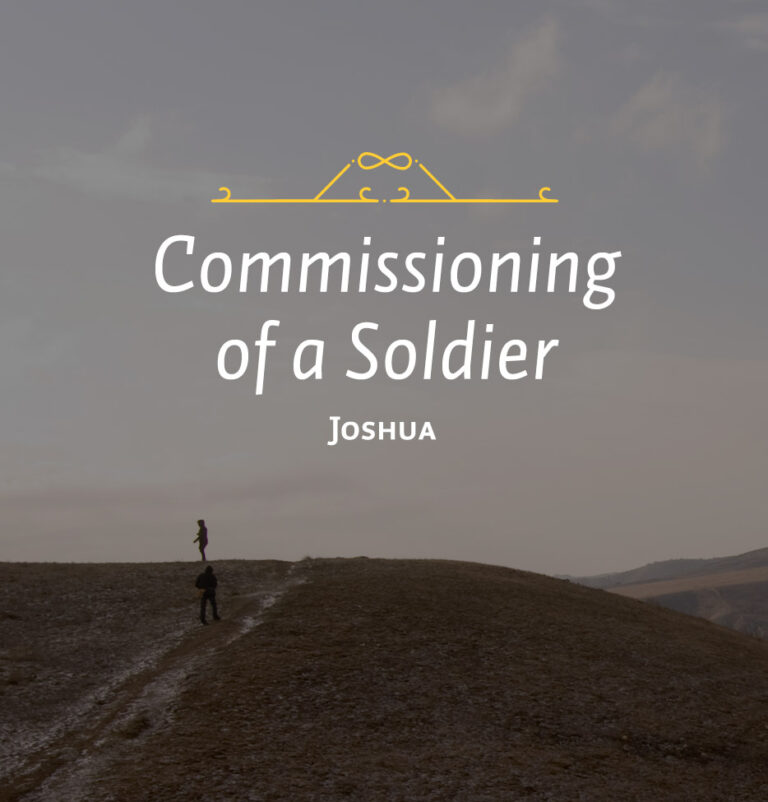
Here we come to Joshua. And we find that this book is named after its chief character, and so it falls in a category of such other books as Ruth, First and Second Samuel, Ezra, Nehemiah, Esther, and the book of Job. Now, it’s appropriate that this book should be named Joshua because, although it deals with other things, it most certainly introduces us to the character and accomplishments of this really extraordinary man. Joshua, as I say, deals with other things. But here is a character who excelled in his obedience to God and led the people of Israel during a difficult and transitional period.

Yesterday we mentioned that Francis Schaeffer called Joshua “a bridge book.” That leads me to say that as I have studied a large number of the commentaries that deal with the book of Joshua, I’ve detected three basic approaches to this book.

This first section of Joshua 1 that we’re particularly considering in this study, Joshua 1:1-9, is divided into two paragraphs. The first paragraph indicates the transitional nature of the book. It’s what identifies it as a bridge, “After the death of Moses, the Lord said to Joshua…” The second paragraph in this first portion of Joshua 1 deals with the Word of God. And it deals with it in such a way that we recognize at once at the very beginning of the book that this is to be the focus of Joshua’s life and the life of the people.

Now, it’s worth reflecting on the specific things that Joshua was told to do so far as this law is concerned. There are four of them. First of all, he was to know God’s Word.

Yesterday we looked at the first two elements of Joshua’s commission. Today we look at the last two, and also conclude our study of Joshua 1:1-9.
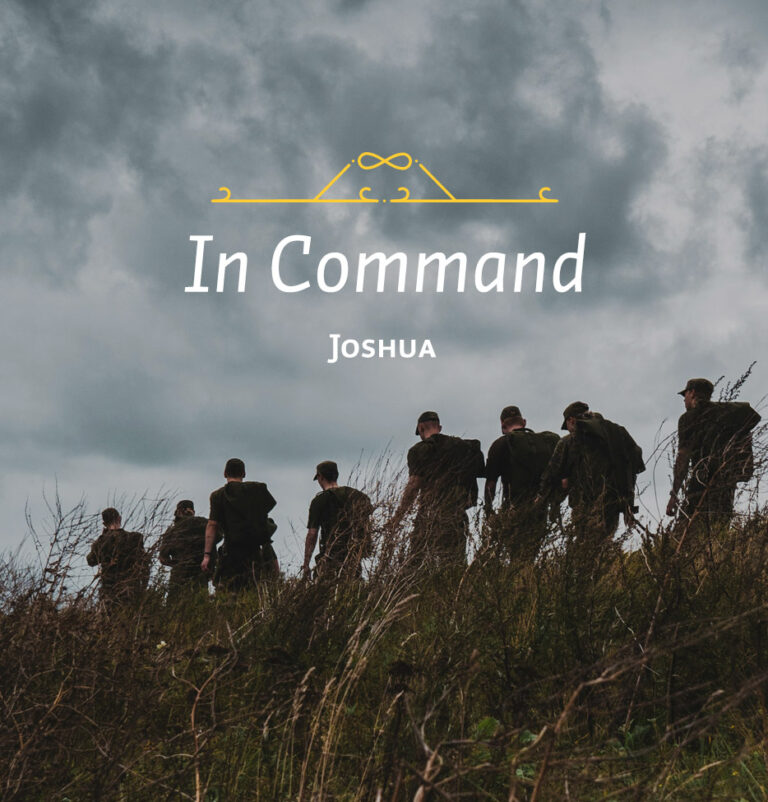
There are two main sections to the first chapter of Joshua. The first part, in verses 1 through 9, contains an account of Joshua’s commissioning by God. The second part, verses 10-18, tells us how Joshua assumed command of the people and began to make preparations for the invasion of the Promised Land.

The third thing that is impressive about the early life in the faithful past of Joshua concerns the earlier incident where Moses sent the spies into the Promised Land.

Secondly, Joshua received a specific call, which we find in Joshua 1. Now when we talk about a call, we have to say that there is a sense in which all of us at all times as Christians have a general call. None of us is left to do nothing. We are all called to be disciples of Jesus Christ.
We’re all called to do good works. That’s just part of what it means to be a Christian. But that’s not what I’m talking about here when I’m talking about a call to leadership. I’m talking about a call to something specific—that is, to a task that a particular individual is given to do.

There’s a third thing I want to mention, and that is that a person who would be a leader must know, and have, and study, and meditate upon God’s objective revelation. It’s important to say that because that subjective and specific call must always be evaluated by, and at times, corrected by, the objective Word of God.

The final thing I want to say is that Christian leaders must also demonstrate genuine faith in God. Joshua was preeminently a man of faith. God told Joshua, “This is the land and I’m going to give it to you.” Joshua believed God, so when he went into the land with the other spies and searched it out, he didn’t care if there were giants. It didn’t bother him that there were walled cities.
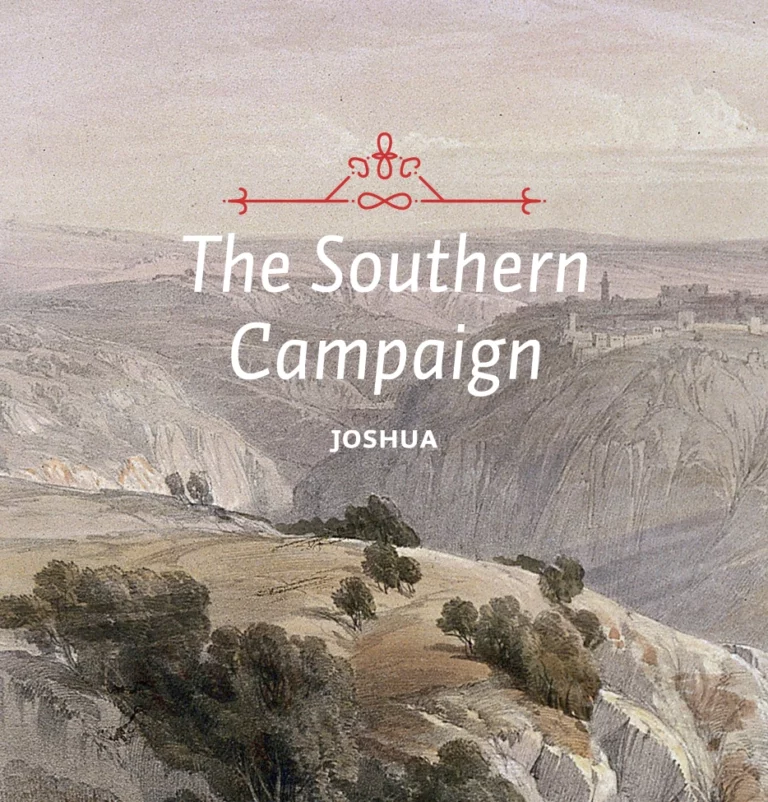
In the middle of Joshua 10 there’s an interesting change in the nature of the narrative that describes the Israelite conquest of Canaan. Up to this point in the story, there have only been three real battles. There was the attack on Jericho and the destruction of that city; the attack on Ai and its destruction; and then there was the battle at Gibeon that began outside the walls of the city and continued southward as the Jewish armies pursued the retreating armies of the southern coalition. And all of that’s been given in considerable detail.

The routed armies were led by five kings. These five kings were apparently together directing the military operations. And when they saw the battle go against them and recognized that they were in great personal danger themselves, they hid in the cave near the town of Makkedah. And they went in to hide, thinking that in the battle the rush of the troops would pass by. Then after they had passed, the kings could emerge and make their way back to the city. They could regroup their fortresses and prepare to fight another day.

I think this is a good point to look back over this campaign and its details and see what it teaches us about the characteristics of strong leadership, which Joshua showed. There probably are other things that can be said about Joshua on the basis of other texts. But just looking at this one campaign, I see at least six things that are worth mentioning and trying to apply to ourselves.

Growing in the Christian life is no mystery. Christians have known what it is in all ages. It’s studying the Word of God. It’s praying. It’s fellowshipping with Christian people. It’s worshipping. It’s working for God. It’s witnessing. It’s testifying. Those are the things through which you grow. And then in response to these things, people say that it takes a long time, and that it’s difficult to read the Bible regularly. There are so many interruptions. That’s right, of course. Nobody ever said it was easy, but that’s the way it’s done.

This leads to the fifth characteristic, which is that Joshua obeyed the Lord completely. This was the most striking of his characteristics. If you go back to the very beginning of the book, you’ll recognize that in the first words of God to him, this is what he was encouraged to do: “Be careful to obey all the law my servant gave you. Do not turn from it to the right or to the left so that you may be successful wherever you go. Be careful to do everything.” Later on we are told, in 11:15, “As the Lord commanded His servant, Moses, so Moses commanded Joshua. And Joshua did it. He left nothing undone of all that the Lord commanded Moses. He obeyed the Lord completely.”

Canadian Committee of The Bible Study Hour
PO Box 24087, RPO Josephine
North Bay, ON, P1B 0C7